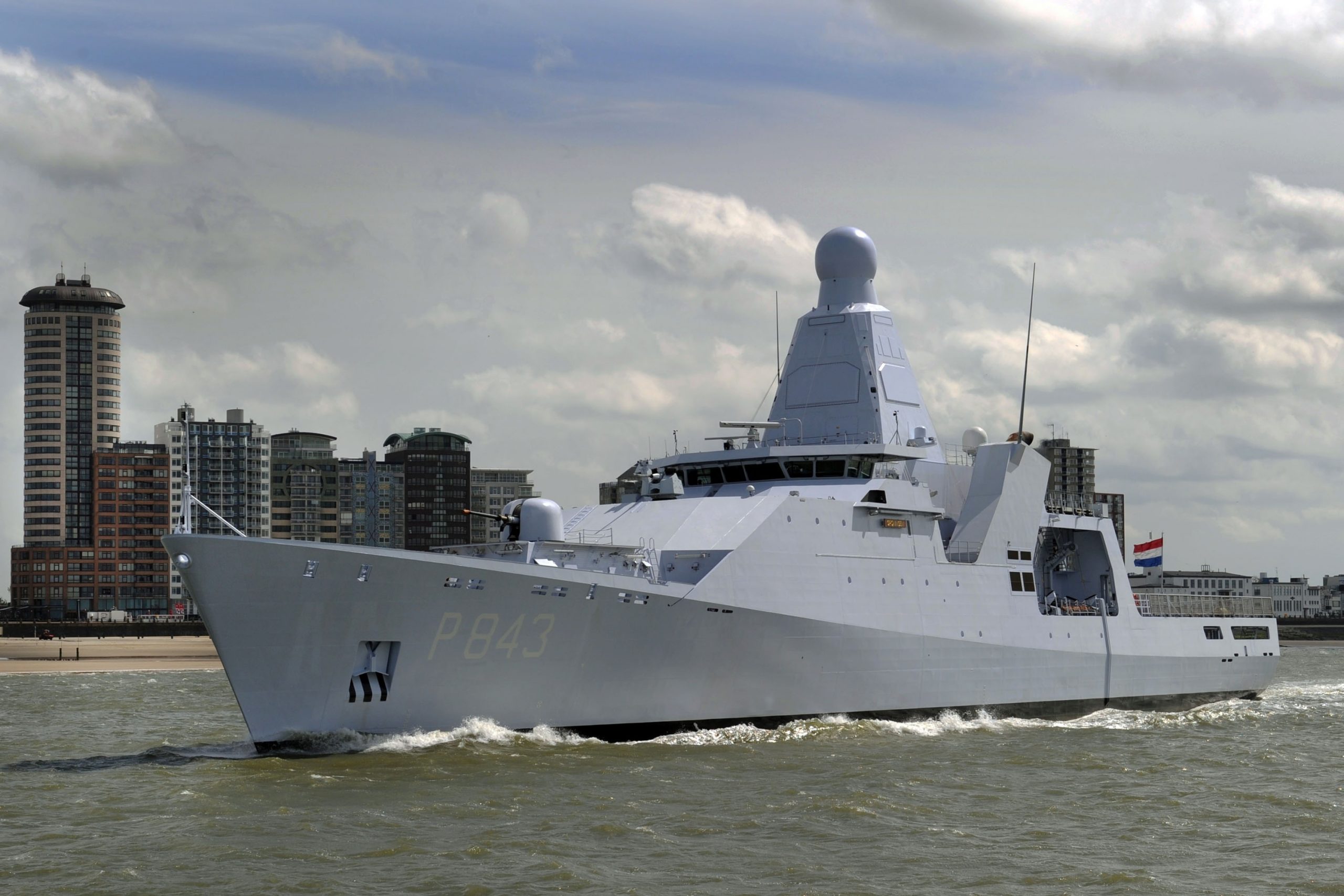Data science can improve the condition monitoring of systems, better predict failure behaviour, and ultimately plan better maintenance. To make use of this technology, the Dutch navy will cooperate with RH Marine and Damen Schelde Naval Shipbuilding (DSNS).
According to the companies, which signed a cooperation agreement with the navy’s Department of Material Conservation (DMI), data science will make the maintenance of the Dutch navy vessels more efficient and predictable. In turn, this will increase availability of navy vessels.
The three parties have made a roadmap to be able to collect, store and analyse all data from the future naval vessels. Shipbuilder Damen will equip the navy vessels with all kinds of new sensors and meters that will provide process data from all systems on board.
RH Marine will supply and maintain the necessary infrastructure to collect and store that data. The storage will take place in new secure data warehouses on board.
Machine learning, algorithms, AI and data modelling
The Royal Netherlands Navy (RNLN) can directly analyse the available data using machine learning, algorithms, artificial intelligence (AI) and data modelling techniques. In addition, RH Marine ensures that the information from the data and the status of all systems will be clearly visible 24/7 on dashboards, both for the crew on board and the onshore maintenance organisation.
In the past year, the three parties started a pilot for this purpose on patrol vessel HNLMS Groningen, which has been made available by the navy as a kind of tech platform.
Secure private cloud
‘What makes this project unique is that we are working with military systems,’ says Harry Strikwerda, Proposal Manager ILS & Naval Services at DSNS. ‘So you need secure networks to prevent intruders from breaking in.’
That is why RH Marine is developing a “secure private cloud” on board the vessels. The systems are also provided with strict security. By better analysing data, the DMI wants to be able to switch from traditional corrective or planned maintenance to modern predictive maintenance. ‘So you only have to carry out maintenance if it is really necessary. That makes it much more efficient,’ says Dieter van Schagen, Sales Manager Defence, Safety & Security at RH Marine.
From the design phase
DSNS is the preferred supplier of the RNLN. When building new frigates in the future, the use of data is taken into account from the design phase. This means that together with the client, the Ministry of Defence, it is possible to work on lower lifecycle costs.
Hein van Ameijden, DSNS Director: ‘The role of the RNLN as launching customer for innovations is essential for the Dutch maritime industry. On the one hand, this ensures that our armed forces continue to have state-of-the-art equipment at their disposal. On the other hand, the close collaboration enables us to continue to develop as an industry and be internationally competitive.’
The collaboration with RH Marine is also logical. The maritime system integrator has supplied navigation equipment, electrical and automation systems for most Dutch navy vessels.
‘We are very pleased with the signing of the Ship Data Science agreement between DSNS, the RNLN and RH Marine. By acquiring and using large amounts of data, we can take the next step in the transition from preventive and corrective maintenance towards predictive maintenance and therefore increasing availability and up-time against lower costs. Also the new ICT technology enables us to use far less cabling and make functionality upgrades on existing vessels with just a software upgrade,’ says Hugo Loudon, Managing Director of RH Marine.
Picture: HNLMS Groningen has been used for a pilot over the past year.








